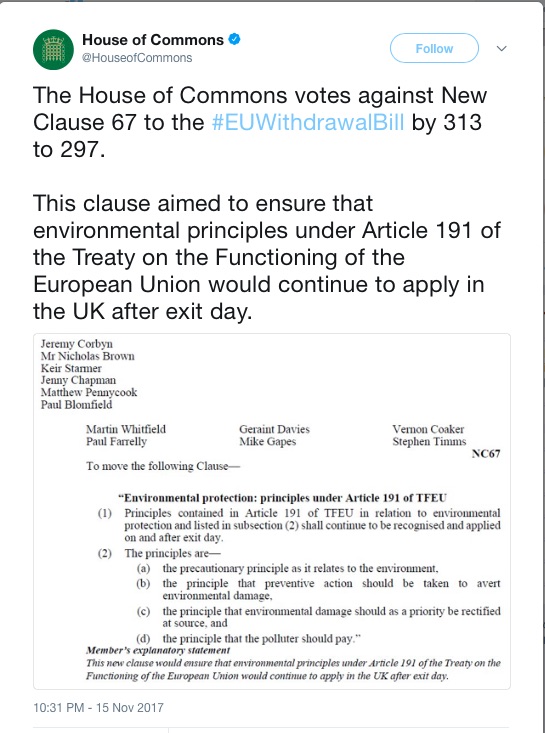MPs fail to retain the Precautionary Principle. What does it mean for baby food marketing ?

Tonight UK MPs voted against a new clause that would have ensured that important environmental protection would continue after Brexit Exit Day. The characteristic feature of the Precautionary Principle is risk prevention in the face of scientific uncertainty. The precautionary principle aims to prevent harm before a hazard has come into existence
This is a terrible shame, but what does it mean for baby food marketing?
As as result of our campaigning and that of european parliamentarians The precautionary Principle is embedded in EU Baby food and formula regulations. While the legislation does not meet World Health Assembly marketing requirements (it is weak on the marketing of products for babies over 6 months) this is an important safeguard that must be promoted and protected as the UK considers its trading relations with the US and other countries that allow risky products and technologies onto the market.
Regulation (EU) No 609/2013 of the European Parliament and of the Council of 12 June 2013 on food intended for infants and young children, food for special medical purposes, and total diet replacement for weight control.
Article 5 Precautionary principle In order to ensure a high level of health protection in relation to the persons for whom the food referred to in Article 1(1) of this Regulation is intended, the precautionary principle as set out in Article 7 of Regulation (EC) No 178/2002 shall apply
Click here for the Inquiry into UK US Trade relations.
Unfortunately EU Regulations leave the task of checking whether ingredients are safe to Member States – not all have the capacity to do this properly. Once an ingredient appears on sale in one country it can then be marketed throughout the EU.
We have been calling for specific and stringent application of the PP, so that:
- all ingredients are pre-authorised following rigorous independent scrutiny, (with particular care over new technologies, such as nanotechnologies;
- systematic reviews of all available evidence is carried out independently of the manufacturers and distributers of the products in question;
- evidence is reviewed on a regular basis to ensure infants are not exposed to levels of nutrients that might put a burden on their metabolism, (a concern already raised by EFSA);[1]
- there is regular post market surveillance indicating the frequency of such reviews;
- food ingredients not listed as essential are kept to the bare minimum;
[1] ibid

Very disappointing close vote which I agree will inevitably further weaken the WHA marketing requirements. The UK must hang onto the Precautionary Principle rather than deal with the costly effect of a hazard which may come as a result of this vote.